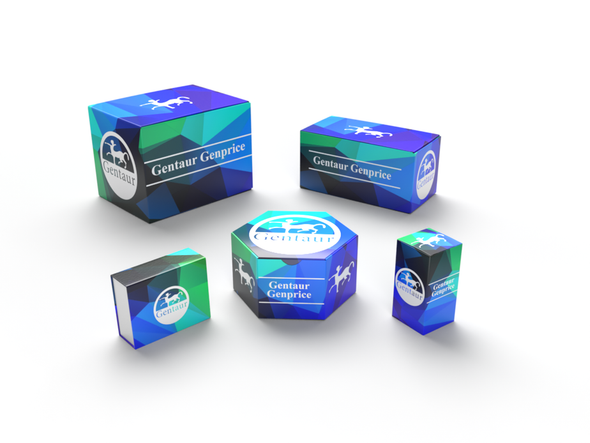Description
CLDN7 Antibody | 55-071 | Gentaur UK, US & Europe Distribution
Host: Rabbit
Reactivity: Human
Homology: N/A
Immunogen: This CLDN7 antibody is generated from rabbits immunized with a KLH conjugated synthetic peptide between 172-201 amino acids from the C-terminal region of human CLDN7.
Research Area: Signal Transduction
Tested Application: WB, IHC-P, Flow
Application: For WB starting dilution is: 1:1000
For IHC-P starting dilution is: 1:50~100
For FACS starting dilution is: 1:10~50
Specificiy: N/A
Positive Control 1: N/A
Positive Control 2: N/A
Positive Control 3: N/A
Positive Control 4: N/A
Positive Control 5: N/A
Positive Control 6: N/A
Molecular Weight: 22 kDa
Validation: N/A
Isoform: N/A
Purification: This antibody is purified through a protein A column, followed by peptide affinity purification.
Clonality: Polyclonal
Clone: N/A
Isotype: Rabbit Ig
Conjugate: Unconjugated
Physical State: Liquid
Buffer: Supplied in PBS with 0.09% (W/V) sodium azide.
Concentration: batch dependent
Storage Condition: Store at 4˚C for three months and -20˚C, stable for up to one year. As with all antibodies care should be taken to avoid repeated freeze thaw cycles. Antibodies should not be exposed to prolonged high temperatures.
Alternate Name: Claudin-7, CLDN-7, CLDN7, CEPTRL2, CPETRL2
User Note: Optimal dilutions for each application to be determined by the researcher.
BACKGROUND: This gene encodes a member of the claudin family. Claudins are integral membrane proteins and components of tight junction strands. Tight junction strands serve as a physical barrier to prevent solutes and water from passing freely through the paracellular space between epithelial or endothelial cell sheets, and also play critical roles in maintaining cell polarity and signal transductions. Differential expression of this gene has been observed in different types of malignancies, including breast cancer, ovarian cancer, hepatocellular carcinomas, urinary tumors, prostate cancer, lung cancer, head and neck cancers, thyroid carcinomas, etc.. Alternatively spliced transcript variants encoding different isoforms have been found.







![CLDN7 Antibody (C-term) [APR15495G] CLDN7 Antibody (C-term) [APR15495G]](https://cdn11.bigcommerce.com/s-1rdwiq712m/images/stencil/590x590/products/54709/463881/gentaur-genprice__26005.1661610467__29809.1661628092__75433.1661676199__77988.1661684280__64362.1661692443__02085.1662049603__45075.1662119302__91744.1662191540__21580.1662291419__42659.1663322662.png?c=1)

![[One Step] CLDN7 Antibody Kit [One Step] CLDN7 Antibody Kit](https://cdn11.bigcommerce.com/s-1rdwiq712m/images/stencil/590x590/products/96449/96988/gentaur-genprice__26005.1661610467__29809.1661628092__75433.1661676199__77988.1661684280__64362.1661692443__09917.1661944254.png?c=1)
